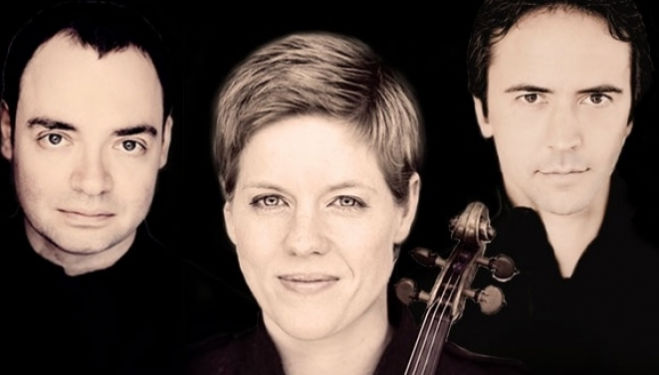
Since their foundation at Budapest’s Music
Academy in 1975, the Takács Quartet have endured the sort of change that would
level a lesser ensemble. In 1983, all four members and their families
immigrated to the United States; a decade later first violin Gabor Takács-Nagy
left the ensemble due to hand stress and personal conflict. Soon after, violist
Gabor Ormai discovered that he had terminal cancer.
Despite these tumultuous times, the Takács remain far and away one of the – perhaps the – greatest quartets in the world, with recordings of the core repertoire that stand among the finest ever recorded. Wigmore Hall Associate Artists, their appearances in London are seldom short of revelatory. This February, they will visit the venue for a pair of concerts over two nights, both of which feature celebrated composers in novel juxtapositions.
First up, on 1 February, are Haydn and Shostakovich. The concert begins and ends with a pair of the former’s ‘Apponyi’ quartets, composed in 793 for the titular count. No. 57, in C major, brought Haydn’s chamber music to an unprecedented scale and variance. No. 59, nicknamed ‘The Rider’ because of its galloping rhythms, is similarly rich, a masterful exercise in classical form. Shostakovich’s String Quartet No. 3 (1946) sees the Russian modernist attempt something similar, drawing together joy, fear and unease over five movements.
Two nights later, on 3 February, pianist Aleksandar Madžar will join the quartet for an evening that pairs Beethoven with Elgar. Beethoven’s String Quartet No. 3 (1800) was the first quartet he ever composed, and at times greatly resembles his teacher Haydn. It largely shows a gentle, warm composer, so different from the grandeur and drama of his mature work. Elgar’s Piano Quintet (1918), composed during a Sussex summer, is similarly lyrical, with a slow movement of profound serenity. In between these two lesser-known masterworks, the Takács will perform the UK premiere of Strong Language by Brooklyn-based composer Timo Andres (Home Stretch), specially composed for the quartet.
Despite these tumultuous times, the Takács remain far and away one of the – perhaps the – greatest quartets in the world, with recordings of the core repertoire that stand among the finest ever recorded. Wigmore Hall Associate Artists, their appearances in London are seldom short of revelatory. This February, they will visit the venue for a pair of concerts over two nights, both of which feature celebrated composers in novel juxtapositions.
First up, on 1 February, are Haydn and Shostakovich. The concert begins and ends with a pair of the former’s ‘Apponyi’ quartets, composed in 793 for the titular count. No. 57, in C major, brought Haydn’s chamber music to an unprecedented scale and variance. No. 59, nicknamed ‘The Rider’ because of its galloping rhythms, is similarly rich, a masterful exercise in classical form. Shostakovich’s String Quartet No. 3 (1946) sees the Russian modernist attempt something similar, drawing together joy, fear and unease over five movements.
Two nights later, on 3 February, pianist Aleksandar Madžar will join the quartet for an evening that pairs Beethoven with Elgar. Beethoven’s String Quartet No. 3 (1800) was the first quartet he ever composed, and at times greatly resembles his teacher Haydn. It largely shows a gentle, warm composer, so different from the grandeur and drama of his mature work. Elgar’s Piano Quintet (1918), composed during a Sussex summer, is similarly lyrical, with a slow movement of profound serenity. In between these two lesser-known masterworks, the Takács will perform the UK premiere of Strong Language by Brooklyn-based composer Timo Andres (Home Stretch), specially composed for the quartet.
| What | Takács Quartet, Wigmore Hall |
| Where | Wigmore Hall, 36 Wigmore Street, London, W1U 2BP | MAP |
| Nearest tube | Bond Street (underground) |
| When |
On 01 Feb 16, 7:30 PM – 9:30 PM On 03 Feb 16, 7:30 PM – 9:45 PM |
| Price | £15-36 |
| Website | Click here to book via Wigmore Hall |




